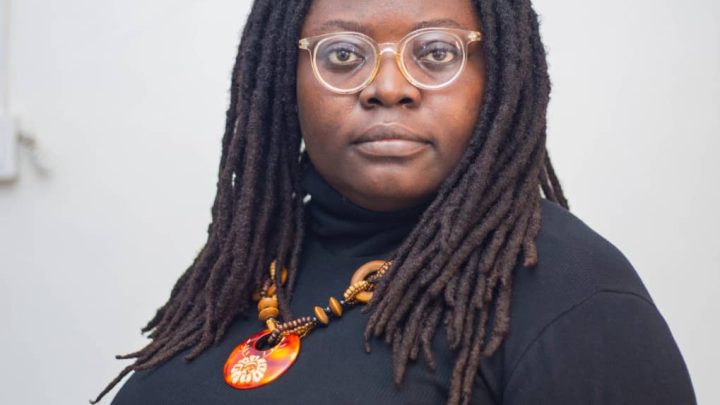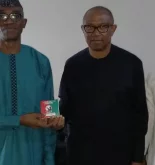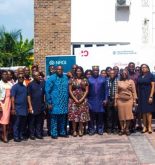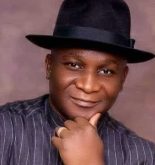Fast-finger Deborah
Deborah Briggs, fondly called Pakis by her friends, is a lot of things rolled into one beautiful body with a smart brain. She is daring, adventurous and highly creative. Sometime in 2007, Deborah was brimming with confidence after scoring 140 in an IQ test that she decided to take a shot at the popular TV show, “Who Wants To Be A Millionaire.”
At that time, she was living with her maternal aunt having lost her mom and her father was far from her life. While she appreciated her maternal relations for all they did to raise her and her sibling, Deborah was determined to use her intellect not only to support their efforts but to make them proud. That was why she applied for and got an invitation to the fast finger challenge, a precursor to the “Who Wants To Be A Millionaire,” show.
Unfortunately, she was disqualified from the show because of her age. “My excitement soon turned to disappointment when I learnt I was below the legal age to participate. It was a crushing blow. I had been ready to conquer my stage fright, embrace the challenge, and make my family proud,” recalled Deborah.
But that was not the end for her. She kept on pushing, dreaming and working on her dreams. Reflecting on her childhood, she said, “I recall spending hours immersed in adventure books, fueled by an active imagination. I fondly remember gathering my siblings, spinning tales of winning lotteries and fulfilling our wildest dreams.
“Our fantasies were simple yet profound—24/7 electricity, running water at home (instead of fetching it from neighbors), and cars for every adult, a bigger house with a playground, endless feasts of fried rice and chicken, and the luxury of video games and amusement parks. Sharing these dreams with my siblings made them feel tangible, as if they were already a part of our reality.”
You can also read – Customs Comptrollers Implicated in N15bn Scandal as CG Adeniyi Waives Duties on 500 NASS Luxury Vehicles
Dreams and more
To turn all these beautiful dreams into reality, Deborah beat every odd that stood against her education. Starting from Bereton Montessori School and Royal Girls Academy in Port Harcourt, Rivers State where she had her primary and secondary education, she proceeded to the University of Port Harcourt, where she studied Petroleum and Gas Engineering.
There were many oil and gas companies in Rivers State and there still are, but she did not want to wait in the queue for the non-existing jobs in the industry when she graduated in 2011. In its place, she took a different professional turn. With the intention of starting her own business in the creative sector, she incorporated Quickprints Media & Communications Limited.
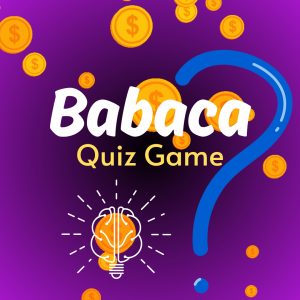
Babaca Quiz Game, created by Deborah Omiema-Briggs
Speaking on why she ventured into the creative industry, she said, “With the progress in technology, I observed that there are millions of intelligent young people like me who desire an opportunity to participate and be rewarded for using their intellectual competence, beyond sports, music, comedy, acting, gambling, and the rest of the entertainment sector.
“I also believe that there is a need to motivate young people in our society who will go on to pursue other important job choices, such as teachers, doctors, nurses, lab scientists, technicians, farmers, lawyers, engineers, accountants, secretaries, and entrepreneurs.”
Babaca of Africa
That is how Deborah came up with the idea for the Babaca, a quiz game that showcases the intelligence of Africans all over the world. It is easy to play, has educational benefits, is accessible, and rewards players for their efforts. The name of the game is inspired by Baobab and Acacia, two ancient trees that have helped Africans even before modern civilization began.
The trees not only provide food and medicine, but they also provide shelter, a symbolism for the commitment of the inventors to creating a welcoming and ever-changing environment where users can engage in a wide range of stimulating activities and experiences.
The telegram-based gaming platform billed for launching in March 2024, comprises five levels, each featuring a timed quiz of 10 questions. Every player must correctly answer all 10 questions at each level to proceed to the last level and win the grand prize when they cross the 5th level. The grand stands at N100, 000 and above in Nigeria and an equivalent in Ghana. The game is opened to persons from age 15 and above from Nigeria and Ghana and each episode attracts a subscription fee of N1, 000 or 20Ghc.
You can also read- Forget Second Term, Setup Government of National Unity, Nduese Essien Tells Tinubu
But Babaca is Deborah’s second instructional game. The first was Vokab Game, an engaging instructional card game that she invented during the 2020 lockdown. Vokab has been shared in Nigeria and Ghana, although it has not yet been formally launched. Deborah is also the founder of Graphic Design Africa (GDA), a Facebook group that promotes and supports young Africans in the arts and business of graphic design. GDA is one of less than 500 Facebook communities worldwide that has been recognised by Meta and benefited from the Facebook Community Accelerator Programme.
Through perseverance, innovation, and an unwavering belief in the power of intellect, Deborah, has embarked on a journey to redefine gaming and celebrate the brilliance of Africa. Welcome to Babaca. Welcome to Africa.

